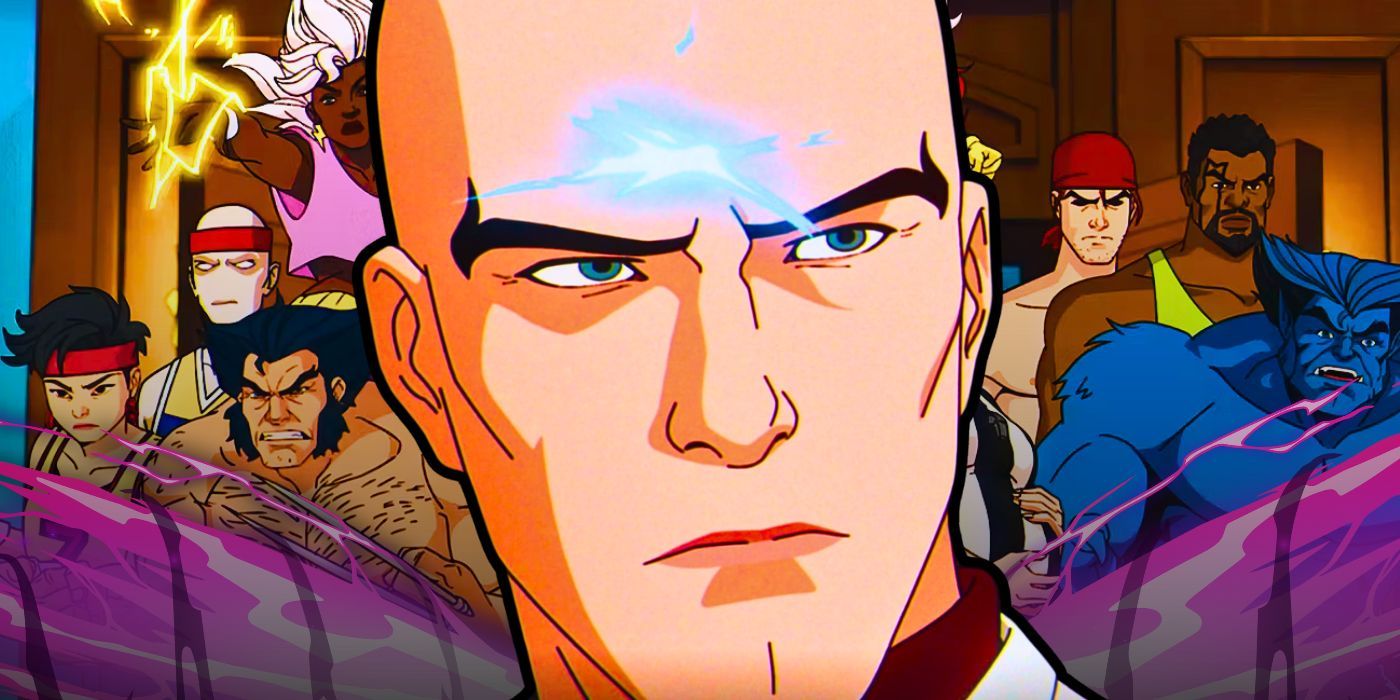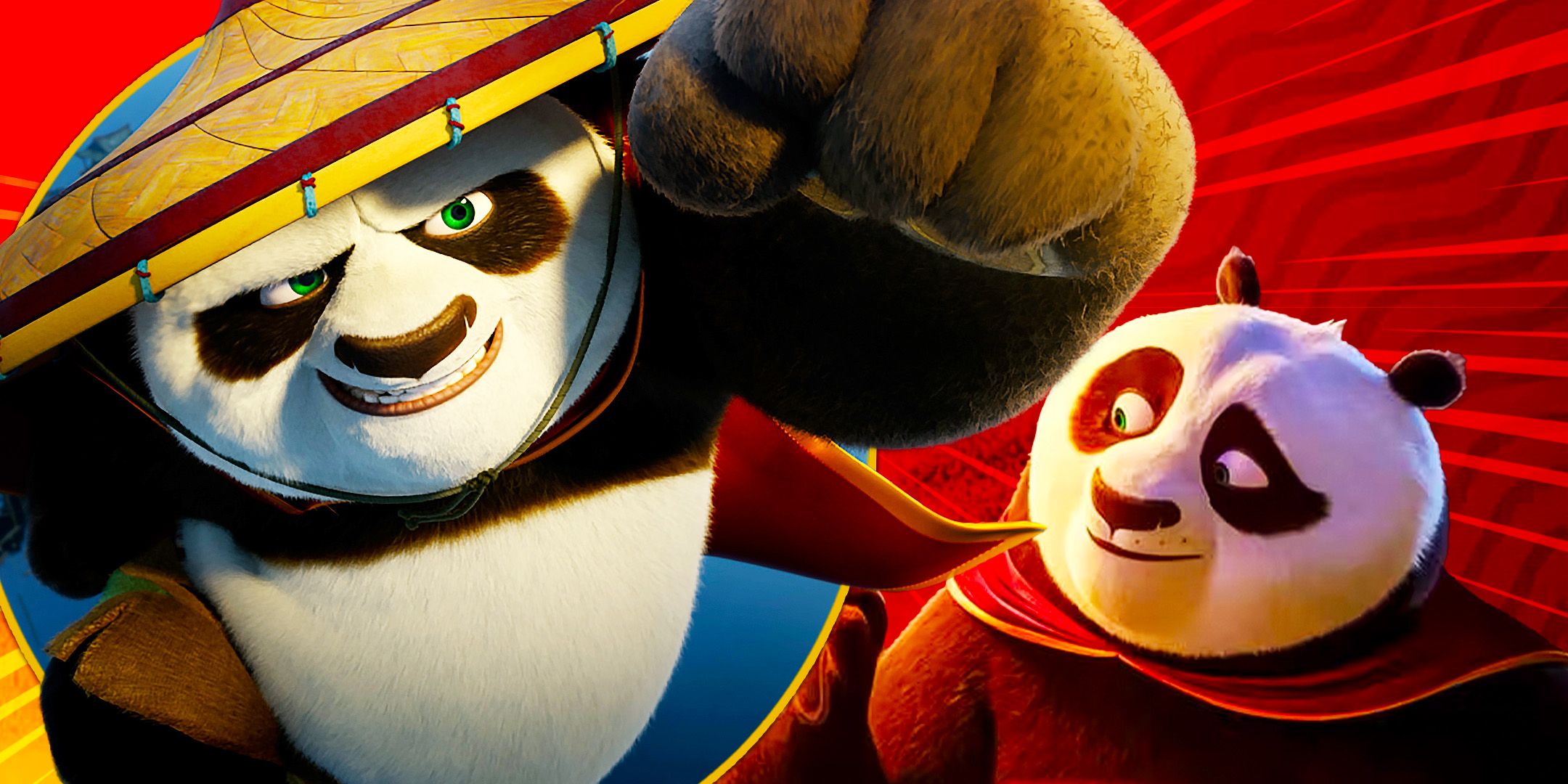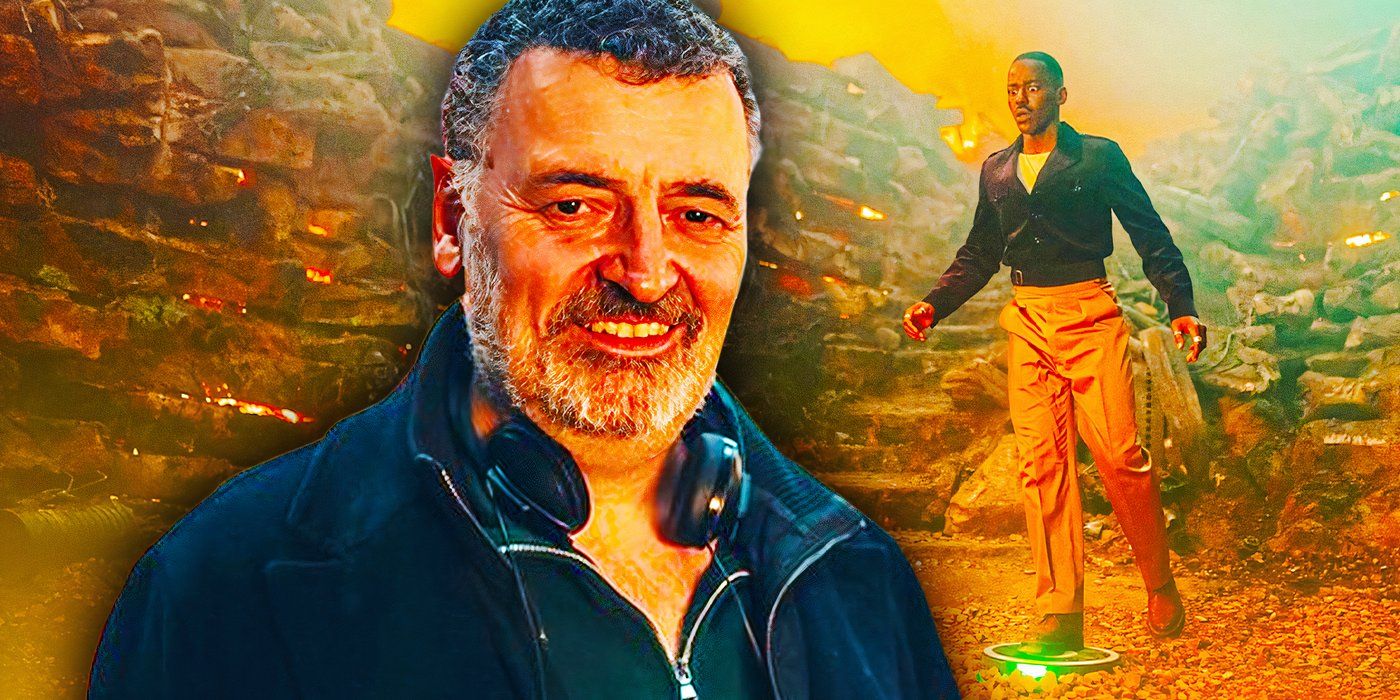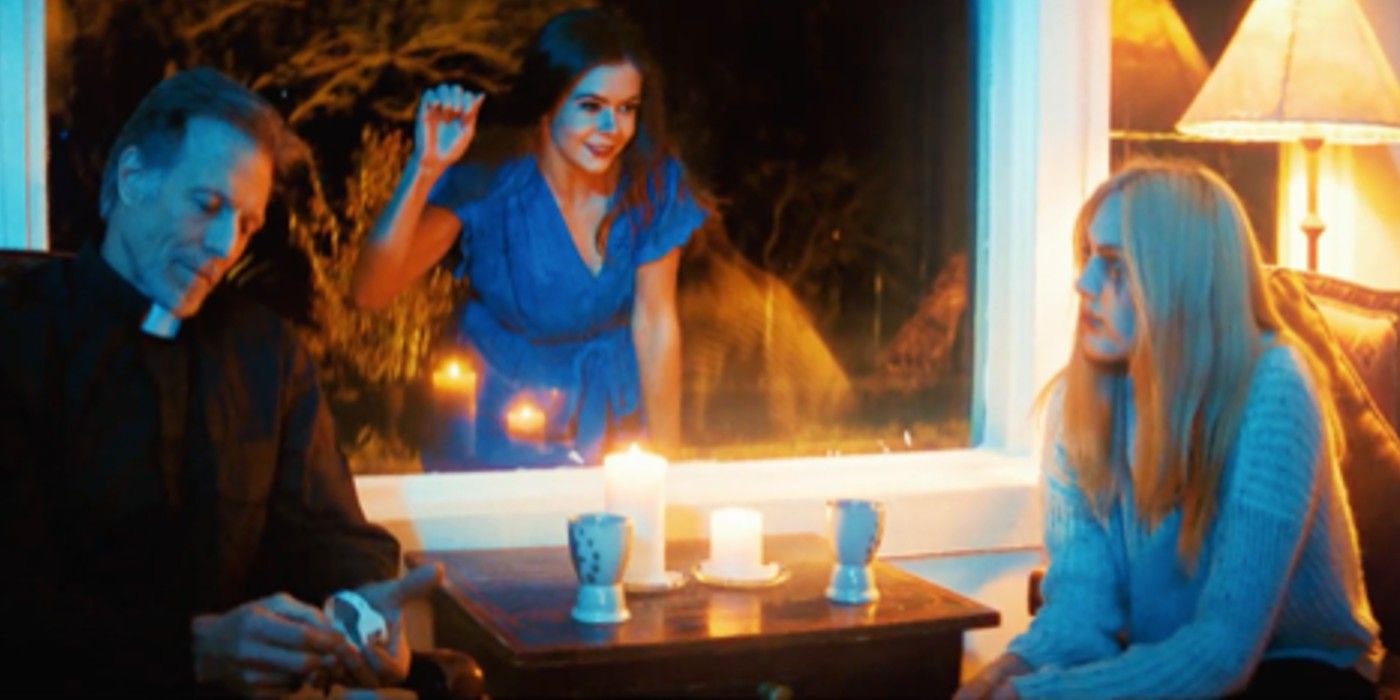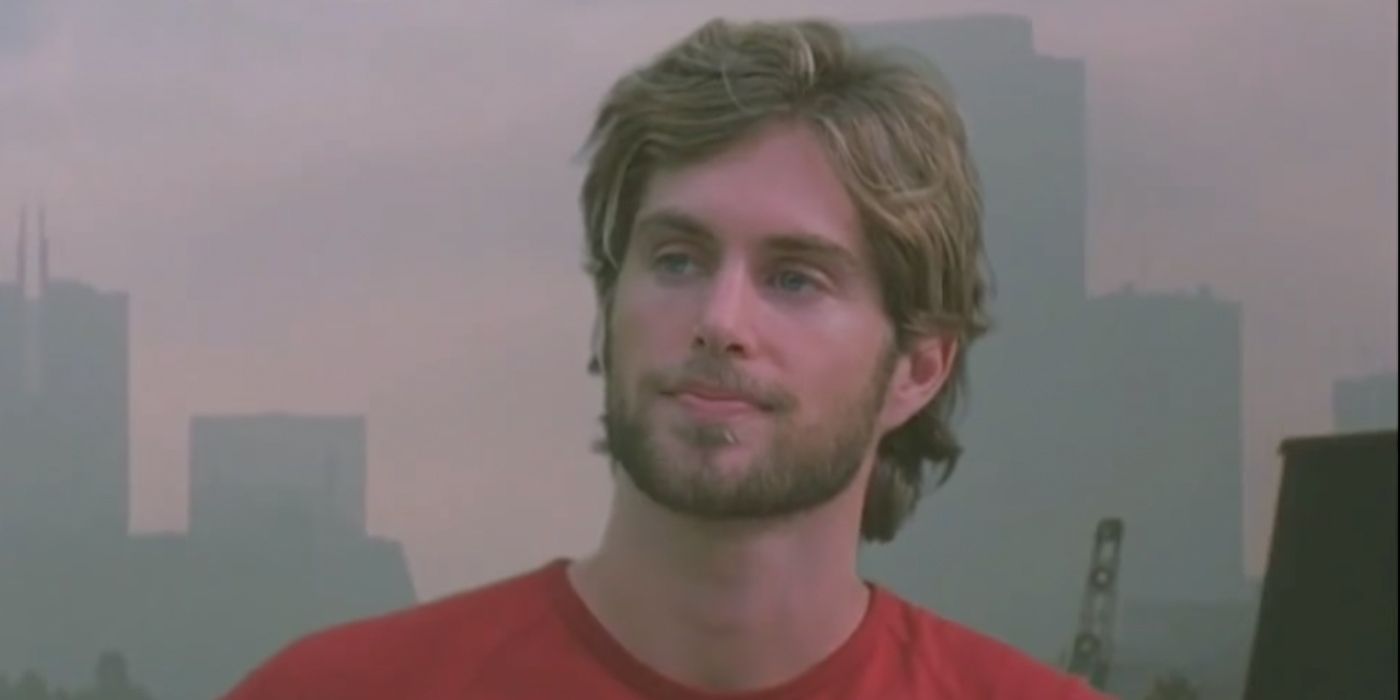Greg Sestero is the writer and director of Miracle Valley, an upcoming horror movie set in the town of the same name. Sestero, who is famously known for The Room and The Disaster Artist, also stars in the movie as David, an obsessive photographer who takes his reluctant girlfriend to Miracle Valley in search of a rare bird. Meeting two friends out there, what unfolds is a horror show of epic proportions as the town is more than it seems, hiding a sinister cult and more beneath the surface.
Screen Rant sat down with Greg Sestero to talk all things Miracle Valley, from the horror movies that inspired it to how he found the real-life location where the movie was filmed.
Screen Rant: So you wrote Miracle Valley while you were living there in Miracle Valley, Arizona, right?
Greg Sestero: Yeah, I was approached by a really cool property down in Patagonia, Arizona a few miles from the border. But it's like the high desert. It's really beautiful. They just converted this whole new property that had been used for the Westerns back in the day - like Gregory Peck stayed there, Gary Cooper. It was like used for these really cool Westerns and I love the place and it was so accessible to so many really great locations. There was an abandoned mine house that was up in the mountains that hadn't been touched in years and it literally looked like if the Halloween house decayed. Like you couldn't even you can't even come up with that if you tried.
So it was this amazing spot up in the mountains like the faded [and] it was just perfectly set for a horror film. So I just went through and took photos and then kind of sat with it. And then I just started writing the scripts while I was living out in the middle of nowhere, and I'd watch five minutes of my favorite horror films every morning for inspiration and figure out what I love about those movies and what can I try to recreate? In a way that is a throwback to 70s horror, because I feel like a lot of horror movies now you see are very clean or very polished. And I just kind of wanted to do a throwback to one of those kinds of popcorn slasher flicks that you throw on and it gives you 90 minutes of madness, and it kind of takes you away.
There are always moments of humor and they're not really forced, you know, they just kind of come out of whatever these characters are trying to do. I had a certain amount of time to write and make the movie and it was a great chance to sort of have a deadline in a way. I kind of did a lot with this movie - scouting, writing, directing. We had a really fun time making it and we've been testing in on audiences. We got with the room where people are cheering and laughing and really engaged and I think I'm really happy we got a chance to edit it and do post [production] during 2020 because it gave us more time to play with it and be able to show it with an audience at a theater.
You mentioned watching some horror movies for this, so were there any, in particular, that got you in the mindset of Miracle Valley?
One of the movies I would watch would be my all-time favorite, which is Psycho. Obviously, the whole bird watching thing I think kind of bled in from a lot of Hitchcock's work. I would watch a 1997 movie called Breakdown - not really a horror film, but again, kind of a play into that 70s. Then I would watch Don't Breathe. I would watch TheThing, Green Room. I had a whole list. Hills Have Eyes.
It was really creepy as I was literally living in a house on a hill in the middle of nowhere in the desert. So at night, it would get obviously extremely dark and I remember you could see into the house, but I couldn't see out. It was just super creepy at times because you'd go to bed, you'd know that anybody who's out there could clearly see where you were. One night, there was a monsoon [that] hit, and [the] power went out. So I had no light. And I had these like lanterns that I was using for light. And it was just like, I'm trying to create a horror film here and end up being in one.
When I was watch[ing] The Strangers - I always had that fear of just the wrong group of people coming down. I'd heard stories of, you know, there because you're on the border. There were smugglers that would come in with drugs and end up in places trying to hide them. Wrong place, wrong time. But luckily, the most dangerous thing that happened is I saw a family of coyotes hiding in the brush. So I got pretty lucky.
Were you always planning on making Miracle Valley your directorial debut?
Horror was always a genre that fascinated me. I saw early, the films that stuck with me were like Nightmare on Elm Street, Silence of the Lambs - those are the ones that really terrified me. What I loved about horror films is you can do so much with them and people really appreciate them. When I wrote The Disaster Room and in The Room, we would do the screenings and people always get excited when I bring up the horror genre, and I thought, "What a great direction to go in."
When I found this location, I did all the scouting, and while I was writing it and living it, I thought, every day I'd wake up in my living room and be like, "This is where so and so's going to get killed. This is where the blood is gonna hit the window. This is what the lighting is gonna look like." I was just in that environment writing the story. So I could almost see the scenes come to life as I was sitting there writing them, and I did all that scouting, so I found all these locations where these scenes would take place. So it was sort of a mix of things when it came down to making it.
I had brought out our director of photography, Matthew Halla, who was really terrific. He came when we met through USC film school. So I brought him out and I showed him the scenes that I wanted to have happen. I mean, I've been working on these scenes and walking through the environment for several months and so I kind of showed him where the shot[s] would come from. So he kind of he got in right away and was like, "I like that. Let's try this." So we had a really great rapport right off the bat, which was pretty easy to say, "Okay, let me do this." And I'd gone out to Bisbee, which is a really cool location and where the opening of the film happens at the old gas station and that old street with a car. When you come into two locations like that, they're so unique and it's so rare that they haven't been used in a film before. And I thought it was just really motivating for me to try to capture it on film and tell a story.
You've got such an interesting blend of different horror tropes - cult horror, body horror, the group of friends in a mysterious location. Were you always wanting to bring these tropes together?
Yeah, I thought about taking what I loved about horror movies, putting them in a blender, and just mixing them up and then seeing where the story took me. Obviously, I won't spoil too much, but what happens with my character, how the person in the beginning that is taken, with their importance to the story. So I started halfway through,[and] I kind of just followed the story. I kind of took all the things that I loved and mixed in. Then I'm like, let the second half of the story kind of do its own thing. That was fun, because it was sort of an exploration for me, telling the story. Living there, it was funny, because my dream was to go away and live in the middle of nowhere and write the script.
I remember being in the house, it was so tranquil and so relaxing. I'm like, I need some noise. And then for probably the last portion of the script, I was driving to a Starbucks near Mexico to get out of the house to write. I'm like, This is so ironic." All I wanted was a private area to write and now here I am trying to find a Starbucks and I'm driving to mix it up.
I think a lot of times, it's really what I try to do when I tell a story, or, for example, The Disaster Artist, I try to pick three to five movies or books that I want this project to be in the same family as a consort of a shared language, so to speak. So like with the Disaster aesthetic - Sunset Boulevard, Boogie Nights, The Master. I tried to see what those characters fit into that frame. With this one, you know, I picked Race With the Devil, The Hills Have Eyes. Get Out. I think what was cool with this is we had a lot of collaboration with the cast. It was like, "What do you guys think about this? What do you think about these kills? What would your character do?" So it was fun. One of the things I've learned through almost two decades of working in film is how important collaboration is with your crew, with your PAs and mak[ing] sure everyone's engaged and having fun and having a voice. Some of these scenes, a lot of them were sort of maneuvered and thought of through discussions and through the actor having a suggestion. I thought that was a great learning experience for me. Casting the right person in the right role can make it way more fun. So I think as you're writing the script, one of the things I did is I had somebody in mind for each role that I could write for, so when they stepped in, I knew their strengths.
Was it difficult to have such a major role in Miracle Valley while also directing yourself?
It was funny. It was the one time I didn't really focus on acting. I just kind of did it and I was thinking, I was so focused on everybody else, making sure they were good. Making sure the setup was good. So for the first time ever, I didn't really focus on my acting or my thoughts. I just knew the story and I just thought I'm just gonna play myself. And I'm like, man, I've been doing it wrong all these years. I've been focused, trying too hard. And you know, with this, I tried to just let it go and just play the scene the way I thought it would be played.
We had a really, really good first AD, Iris Torres. She had worked on a lot of projects with James Franco and she came down and helped us out. She was really, really good at bringing that all together. I think one of the biggest rewards writing a script is you really care about all the characters, not just, as an actor, caring about your performance. But I think with this, I was so focused on making sure everyone else was doing their thing and fitting in that I, for the first time, I didn't really think much about making sure I was acting. I was just playing the part of the character that I knew that I wrote for.
Is there anything else you want to tease about Miracle Valley? Do you know when it's getting a wider release?
We've done some advanced screenings and some test screenings and it's just one of those movies that you see with a crowd. It comes alive in a way that I didn't even know - in a way that I hoped but it's just - it was really encouraging and really exciting. I really hope to do more screenings [this] year and officially release it sometime [this] year. I think people will really get a kick out of it. I think it's a new kind of entity.


